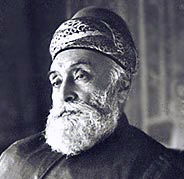Business magnate
Business magnate refers to an individual who has achieved significant success and influence in the world of business, often through founding, owning, or controlling multiple large enterprises in one or more industries. These individuals are characterized by their immense wealth, entrepreneurial skills, and often, a considerable degree of public influence and power. Business magnates play a pivotal role in shaping industries, economies, and even societal norms through their business practices, innovations, and philanthropic efforts.
Characteristics[edit | edit source]
Business magnates are distinguished by their ability to create or transform entire industries. They possess a combination of entrepreneurial vision, leadership skills, and a keen understanding of their market that allows them to capitalize on opportunities that others may not see. Often, they are risk-takers, investing substantial resources into ventures with the belief in their eventual success. Their work ethic, persistence, and ability to innovate are also key traits that contribute to their achievements.
Impact on Economy and Society[edit | edit source]
The influence of business magnates extends beyond the companies they own or manage. They can have a profound impact on the economy by creating jobs, fostering innovation, and driving economic growth. Through their philanthropic efforts, many also contribute to societal welfare, funding education, health, and various social causes. However, their power and wealth can also lead to concerns over economic inequality and undue influence over political processes.
Notable Examples[edit | edit source]
Throughout history, there have been many individuals who have risen to the status of business magnate in various fields. Some notable examples include:
- John D. Rockefeller, who made his fortune in the oil industry and is often considered the wealthiest American of all time. - Andrew Carnegie, known for his dominance in the steel industry and his significant philanthropic contributions. - Henry Ford, who revolutionized the automotive industry with the introduction of the assembly line technique of mass production. - Bill Gates, co-founder of Microsoft, who played a key role in the personal computer revolution. - Jeff Bezos, founder of Amazon.com, who transformed the retail industry through e-commerce.
Challenges and Criticisms[edit | edit source]
While business magnates are often celebrated for their success, they also face criticism and challenges. Their vast wealth and influence can lead to accusations of monopolistic practices, exploitation, and contributing to economic and social inequalities. The ethical responsibilities of business magnates, including how they acquire their wealth and its impact on society, are subjects of ongoing debate.
Conclusion[edit | edit source]
Business magnates are powerful figures in the global economy, capable of influencing not just the industries in which they operate but also broader societal trends. Their journeys offer insights into entrepreneurship, the potential for innovation, and the complexities of wielding significant economic power.
Search WikiMD
Ad.Tired of being Overweight? Try W8MD's physician weight loss program.
Semaglutide (Ozempic / Wegovy and Tirzepatide (Mounjaro / Zepbound) available.
Advertise on WikiMD
|
WikiMD's Wellness Encyclopedia |
| Let Food Be Thy Medicine Medicine Thy Food - Hippocrates |
Translate this page: - East Asian
中文,
日本,
한국어,
South Asian
हिन्दी,
தமிழ்,
తెలుగు,
Urdu,
ಕನ್ನಡ,
Southeast Asian
Indonesian,
Vietnamese,
Thai,
မြန်မာဘာသာ,
বাংলা
European
español,
Deutsch,
français,
Greek,
português do Brasil,
polski,
română,
русский,
Nederlands,
norsk,
svenska,
suomi,
Italian
Middle Eastern & African
عربى,
Turkish,
Persian,
Hebrew,
Afrikaans,
isiZulu,
Kiswahili,
Other
Bulgarian,
Hungarian,
Czech,
Swedish,
മലയാളം,
मराठी,
ਪੰਜਾਬੀ,
ગુજરાતી,
Portuguese,
Ukrainian
Medical Disclaimer: WikiMD is not a substitute for professional medical advice. The information on WikiMD is provided as an information resource only, may be incorrect, outdated or misleading, and is not to be used or relied on for any diagnostic or treatment purposes. Please consult your health care provider before making any healthcare decisions or for guidance about a specific medical condition. WikiMD expressly disclaims responsibility, and shall have no liability, for any damages, loss, injury, or liability whatsoever suffered as a result of your reliance on the information contained in this site. By visiting this site you agree to the foregoing terms and conditions, which may from time to time be changed or supplemented by WikiMD. If you do not agree to the foregoing terms and conditions, you should not enter or use this site. See full disclaimer.
Credits:Most images are courtesy of Wikimedia commons, and templates, categories Wikipedia, licensed under CC BY SA or similar.
Contributors: Prab R. Tumpati, MD




